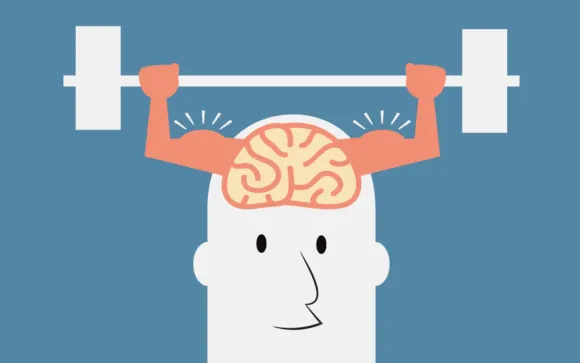We don’t often think about our health unless something is seriously wrong. Then, it’s time for a visit to the doctor. There are things that any man can do to reduce the risk of chronic illness and stay healthy.
Why be healthy? Knubian GATLIN, a Houston Methodist dietitian, asks: “Why be well?” When we look after ourselves, our quality of life increases. “We have more energy and can do what we love for longer.”
Jonathan Williams, Houston Methodist’s health fitness coordinator, reiterates this message, adding that men should prioritize their health more.
Williams says that when you examine the 10 leading causes of death for men, they are more likely to die than women. It doesn’t need to be like this. Men can reduce their risk of heart disease, diabetes, stroke and liver disease by taking certain steps.
Healthy men follow the following principles:
- Healthy hormonal balance
- Physical Activity
- Eating a balanced diet
- Maintaining good heart health
Gatlin & Williams offer their advice on how to achieve a healthy lifestyle.
1. Understanding the importance of testosterone in overall health
Gatlin says that testosterone is an androgenic hormone responsible for hair growth and strength, sex desire, sperm, bone density, and fat distribution. Testosterone levels start to decline naturally between 30 and 40. It is normal to see a decline in testosterone levels, but certain medical conditions and habits can cause them to drop even further.
A number of factors cause low testosterone.
- Obesity, especially abdominal fat
- Inactivity
- Poor nutrition
- Excessive alcohol consumption
- Untreated medical problems such as sleep apnea, unmanaged diabetes and other health issues
Reducing these factors can help maintain healthy testosterone levels. If you see signs of low testosterone levels, consult your doctor.
2. Physical activity reaps the rewards
Fitness has many benefits, including:
- Weight Management
- Reduce blood pressure and cholesterol levels
- Reduced risk for many chronic diseases, such as heart disease, type 2, diabetes, metabolic syndrome and certain cancers
- Strengthening bones and muscles
- Mental health improvements
- Improved mobility
- Less joint pain
- Increased chance of living longer
Make sure you have plenty of time to exercise. Standard recommendations recommend being active at least two to three times per week and for a total of 150 minutes per week.
Williams says that resistance training, in particular, reduces visceral (or abdominal fat) fat, which is fat under the abdominal wall. This fat is unhealthy and dangerous. This type of exercise increases testosterone production and improves a man’s health.
3. Meet your protein needs
When broken down, protein provides amino acids to our bodies. These molecules play various roles in the human body, including muscle maintenance and tissue building (including hair growth).
Gatlin says that the total protein requirements per day are dependent on a person’s weight. “Rather than get caught up in complicated calculation, I recommend that you eat between 20 and 40 grams of proteins at each meal throughout the day. Most men need around 25 grams.”
You should aim to consume most of your protein from sources that are lean, such as:
- Skinless chicken breast
- Tenderloins of beef or pork
- Fish
- Low-fat dairy products
- Tofu and other soy products
- Beans, lentils and peas
- Nuts, seeds and other nuts
- Some whole grains like quinoa, whole wheat pasta and oats
4. Keep a healthy body weight
Gatlin stresses that the problem is not just weight.
Gatlin says that the fat around the waistline is what we are most concerned about.
(Related to: Why belly fat is so dangerous & how to lose it)
This fat, also known as visceral fat or abdominal fat, is biologically active and secretes hormones and other molecules that are linked to chronic diseases such as heart disease and type-2 diabetes.
Exercise is also important. A balanced diet will help you lose weight. Gatlin, in an age of trendy diets and eating patterns, recommends the Mediterranean diet.
Gatlin says that the Mediterranean diet emphasizes a healthy diet with plenty of fruits and vegetables, whole grains, and healthy fats. While animal products can still be eaten, the Mediterranean Diet typically favours plant-based proteins and fish over meat.
5. Find out your body type
Williams says, “We have all seen the guy who looks like a physique and barely exercises. We’ve all seen the guy who is always working out, but it doesn’t show. It usually comes down to how each man’s body conforms to a particular type.
Three main body types with their respective characteristics are:
- Ectomorphs are naturally thin and muscular, with little body fat.
- Mesomorphs are medium-sized bodies with strong legs and arms.
- Endomorphs are naturally curvier, with wider hips and waists, larger bones and a tendency for weight gain.
Understanding your body type will help you to understand your natural physique and identify your strengths and weaknesses.
Williams says that an ectomorph should build muscle but that he shouldn’t. Williams says that an endomorph does not have to be overweight. This information can help you set your fitness goals and avoid comparing yourself with someone who has a different metabolism. It’s unfair.
6. Limit sugar and refined carbohydrates
Gatlin says that refined carbohydrates, such as sugars added, lower testosterone levels. Consumed excessively, refined carbohydrates can lead to weight gain and chronic diseases, such as high cholesterol, high pressure, and type 2 diabetes.
The American Heart Association recommends that men limit their added sugar intake to no more than 36 grams per day.
Sugar is found in sodas, candy bars, and cookies. You might be surprised to learn that some foods contain sugar.
- Energy drinks
- Coffee Drinks
- Certain cereals, even the “healthy ones.”
- Ketchup and other condiments
- Some salad dressings
Gatlin says, “Be aware of hidden sources of sugar because those 36 grams per a day can quickly add up.” The carbohydrates section of the nutrition label will list the added sugar content.
7. Sedentary habits can be corrected
Many men spend their workdays sitting down and getting a little exercise. Even if you have a job that keeps you active, you may find yourself sitting on the couch during your free time.
Williams says that our bodies were designed to move. “Prolonged sitting increases a man’s health risks, such as high blood pressure and type 2 diabetes.
Williams’ tips to remedy sedentary behaviour include:
- Schedule short breaks every hour to get up and walk around
- Stretching or walking around the office
- If you can, choose the stairs over the elevator
- Moving around or limiting screen time while watching entertainment
- Stretching before bed
- If you are struggling to get out of a sedentary habit, consult a fitness coordinator or doctor.
8. Be mindful of alcohol consumption and drink plenty of water
Gatlin says that water is essential for many bodily functions. Water helps your heart pump the blood to your muscles. It also regulates your body temperature and promotes normal bowel movements.
The average man should drink 13 cups of water a day. However, this number can be adjusted based on factors such as age, health, exercise routine, and medications.
Stay updated
Sign up to receive our newsletter, which includes articles, videos and health tips.
Williams says, “And be responsible and mindful with alcohol consumption.” “Be mindful of your overall health and limit your alcohol intake.”
9. Prioritize fiber intake
According to the American Society for Nutrition, only 5% of men consume enough fibre each day.
Gatlin says that this is a serious problem, as fibre has many health benefits. It can help maintain healthy bowel movements and regulate blood pressure.
The seven benefits of fibre that should convince you to eat enough of it
Men should aim for 25-38 grams per day.
Fiber sources include:
- Whole grains
- Non-starchy vegetables
- Fruits
- Nuts, seeds and other nuts
Gatlin says that adding one cup of non-starchy vegetables to your daily diet is a simple tip. As you increase your fibre intake, make sure to stay hydrated, as your body needs water to use fibre.
10. Exercise barriers: Identify them and correct them
Even if you know the amount of exercise you should be doing, your life can still get in the way.
Williams says that stressors can lead to inactivity, such as lack of motivation or time to exercise, limited access to fitness facilities and bad weather for those who prefer to work out outdoors.
Some tips to remove these barriers include:
- Workout clothes to keep in the car or office
- Listen to audiobooks or podcasts, or create a great workout playlist.
- Exercise with your body weight, go on a long stroll, or jog. You don’t need any equipment or a gymnasium to do these exercises.
- Move your workout indoors. Try bodyweight exercises, or buy dumbbells or resistance bands if you don’t access a gym.
11. Make sure you consume plenty of vitamins, minerals and other nutrients
Does your diet provide your body with all the nutrients it needs?
Gatlin says that a balanced diet will help you get the vitamins and minerals your body needs. Two in particular I recommend men concentrate on are zinc and magnesium. Both magnesium and zinc play various roles in promoting healthy testosterone levels.
Both also help to support the immune system and hair growth. Magnesium also helps maintain and build muscle strength.
Magnesium is found in:
- Pumpkin seeds and Chia seeds
- Black Beans
- Bananas
- Almonds
- Dark greens like spinach
Zinc is found in:
- Lean cuts from beef or poultry
- Whole grains like quinoa and brown rice
- Sesame, pumpkin and hemp seeds
12. Manage stress
Men may not want to discuss their emotions. If you are uncomfortable having such conversations, you should at least check your mindset.
Williams says to ask yourself whether you are prioritizing your health and, if not, set small goals that will help you get there. Managing stress can reduce hormone levels that cause visceral fat to accumulate in the body.
Gatlin says that the stress hormone cortisol is particularly harmful because it blocks testosterone production.
Williams says that we need to find ways of reducing stress and restoring our mindset. This could be through finding a relaxing activity, exercising, slowing ourselves down, stretching before going to bed or meditating.
13. Kegels are not only for women.
Men should also consider pelvic health, which is often viewed as a topic that only women are concerned about.
Gatlin says that Kegels are beneficial to men because they help maintain pelvic muscles, which support healthy urination. Kegels have been linked to better urinary control, better control of an overactive bladder, and reduced incontinence following prostate surgery.
14. Healthy fats: What you need to know
We don’t have to avoid fat – quite the contrary. Gatlin says that we need to make sure we choose healthy unsaturated fats over unhealthy saturated fats. Healthy fats are necessary for testosterone production.
Healthy fats are found in:
- Avocados
- Olive oil
- Salmon, trout, and tuna
- Salad dressings with oil
- Almonds, pecans and peanuts
- Pumpkin seeds and sesame seeds
15. Schedule your annual checkup
It’s not a good idea to wait until you’re sick to visit your doctor.
During an annual examination, your doctor will not only assess your diet and your exercise routines but also perform the following:
- Check your vitals, including your blood pressure
- Listen to your heart, lungs and soul
- Tests and blood tests can help you prevent problems such as high blood pressure, diabetes and high cholesterol.
- You may also need to have other health exams.
- Assess your mental health.
These checkups can be crucial for maintaining good health. They catch problems before they turn into chronic issues that need medication or more aggressive treatments.
Your doctor can tell you when to have a prostate cancer screening.
Gatlin says that prostate cancer is currently the second most common form of cancer among men in the U.S., All men should get screened at age 50. However, for some men, screenings may be needed earlier.
Prostate cancer can affect any man, but factors such as age, race and family history can increase the risk.
Gatlin says that African-American men are at a higher risk of prostate cancer than other men.
Screening for prostate cancer should start at:
- Age 50 for men at average risk
- Age 45 for African American men or men with a first-degree relative who has been diagnosed with prostate carcinoma before age 65
- Age 40 for men with multiple first-degree relatives who were diagnosed with prostate cancer before age 65



